Pallet Stacker Truck Courses
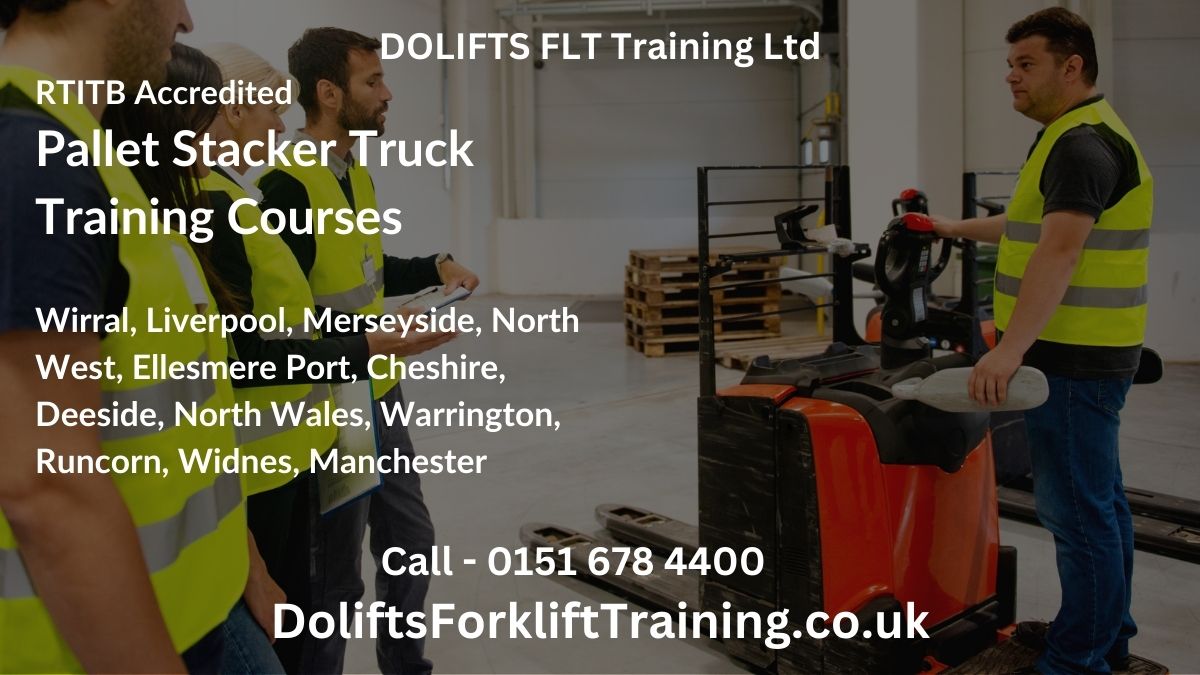
Pallet Stacker Truck Courses
Our RTITB Accredited Pallet Truck Courses and Pallet Stacker Truck Courses (PPT/POET) are available to businesses throughout the North West, Wirral, Liverpool, Merseyside, Ellesmere Port, Cheshire, Deeside, North Wales, Warrington, Runcorn, Widnes and Manchester,
For onsite Pallet Stacker Truck Courses at your business premises, call us on 0151 678 4400 for more onsite training details.
Pallet Truck & Pallet Stacker Categories
These lift trucks are more commonly known as ‘PPT’ or ‘POET’ trucks, but did you know that there are more than one type of Pallet Truck or Pallet Stacker Truck?
The Accrediting Bodies Association (ABA) has identified 7 categories of Pallet Trucks and Pallet Stacker Trucks used in the UK.
They are Category A1, A2, A3, A4, A5, A6 and A7.
Each category of pallet truck and pallet stacker truck has a different purpose in the workplace and they each require a separate lift truck operator certificate.
You will need to receive formal training from a forklift instructor before using each category of pallet truck or pallet stacker truck.
It is therefore important that you identify the correct category of Pallet Truck and Pallet Stacker Truck that best suits your employment or business requirements and then book the Pallet Stacker Truck Courses for your particular needs.
List of Pallet Stacker Truck Courses
Select the relevant Pallet Truck category from the list below (A1, A2, A3, A4, A5, A6 or A7).
Then choose your experience level (Novice/Experienced/Refresher/Conversion).
Then view the specific course syllabus/trainee ratios/duration for that category of pallet or stacker truck.
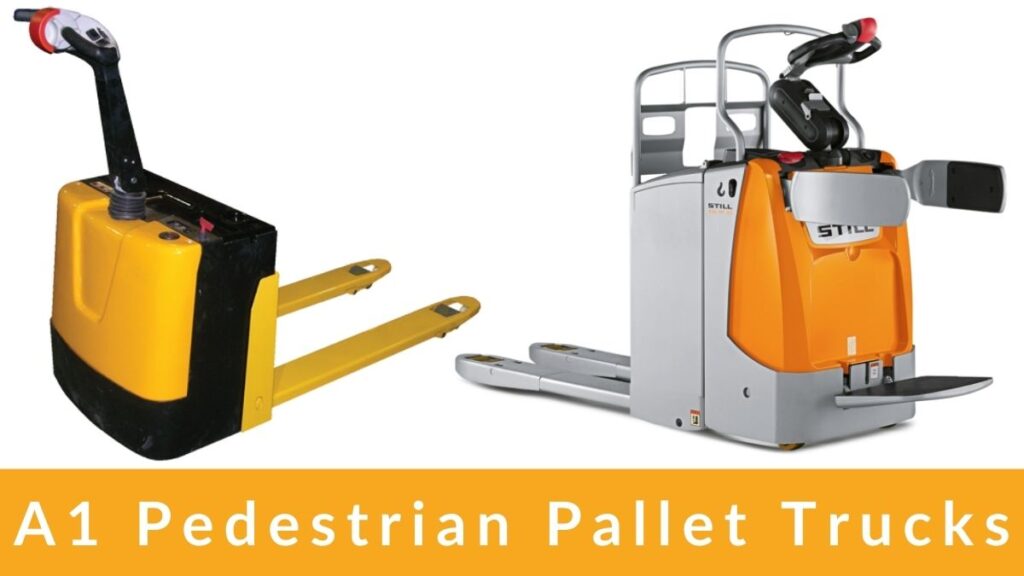
A1 Pedestrian Pallet Trucks
The A1 can be pedestrian or ride-on operated low lift platform & low lift order-picking trucks. Electric powered.
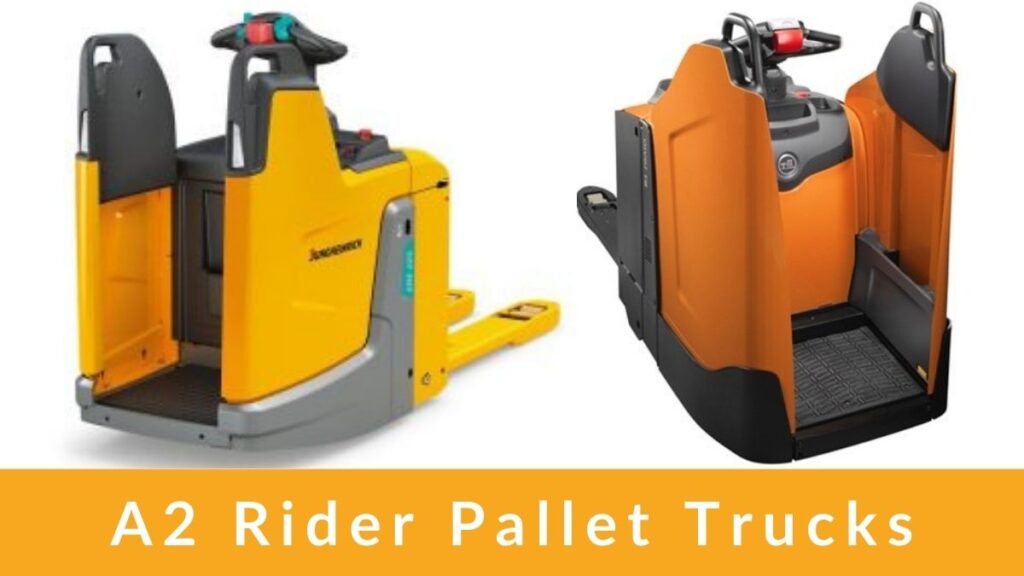
A2 Rider Pallet Truck
The A2 are rider operated low lift platform & low lift order-picking trucks. Electric powered.
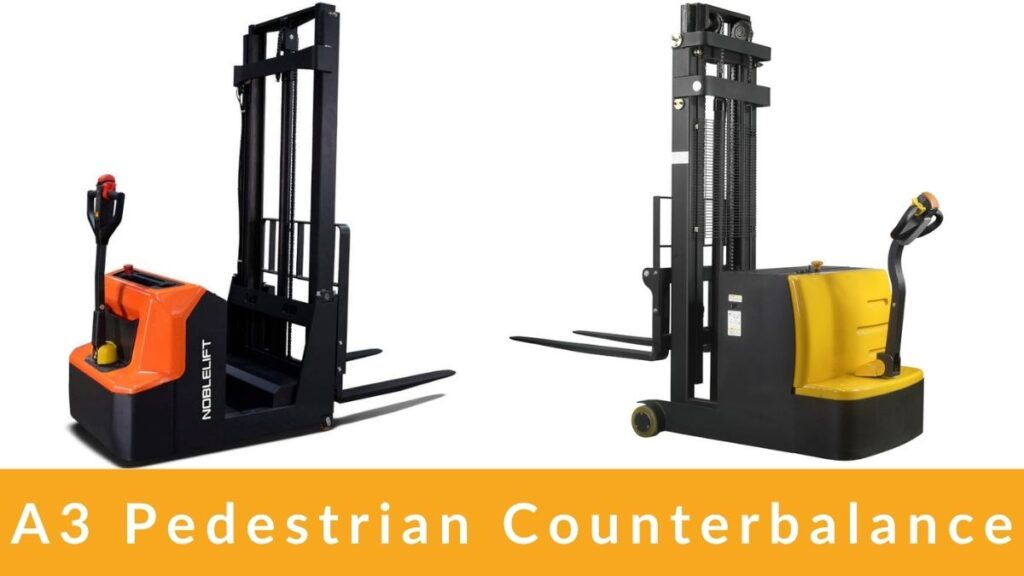
A3 Ped Counterbalance Trucks
The A3 are pedestrian operated and can be Low/Eye/High level lift heights. Electric powered.
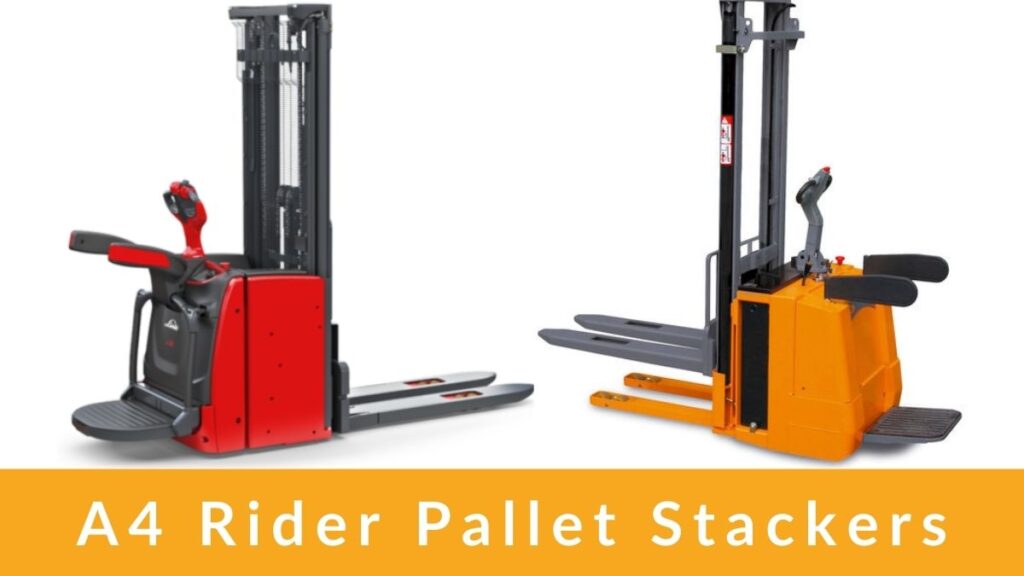
A4 Rider Pallet Stackers
The A4 Pallet Stackers are rider operated with Low, Eye or High level lift heights. Electric powered.
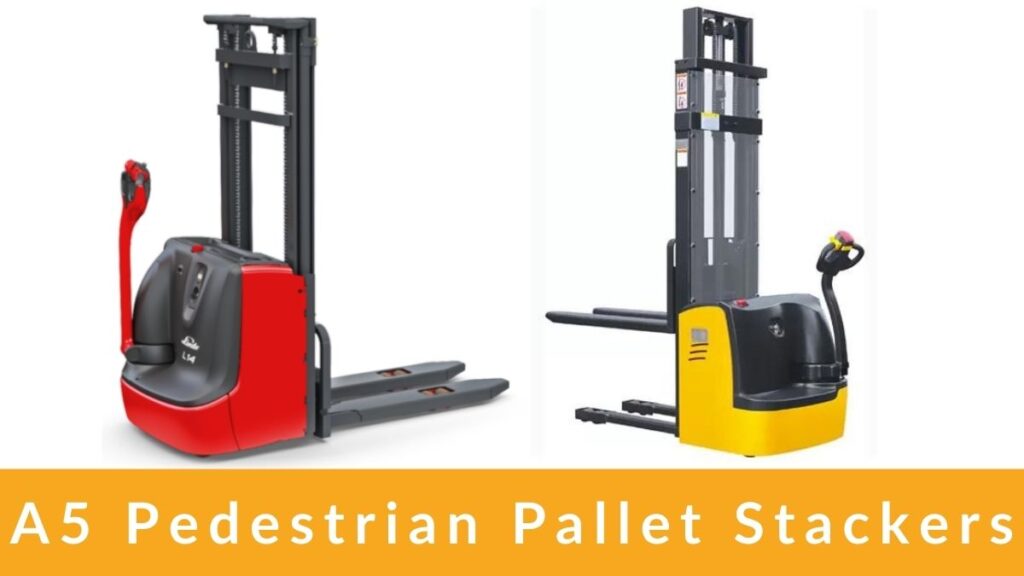
A5 Ped Pallet Stackers
The A5 Pallet Stackers are pedestrian operated with Low/Eye/High level lift heights. Electric powered.
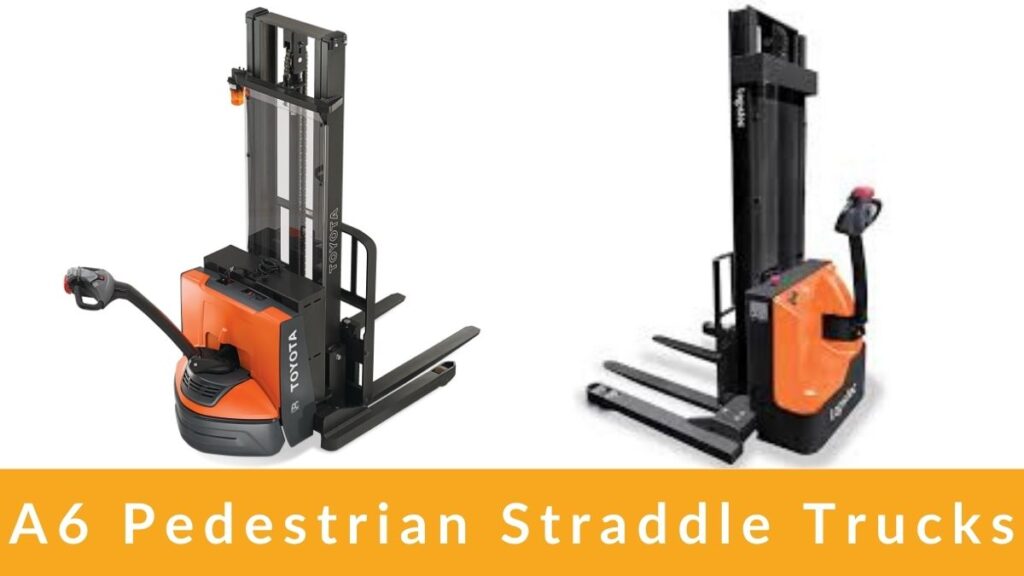
A6 Ped Straddle Trucks
The A6 Straddle Trucks are pedestrian operated with Low/Eye/High level lift heights. Electric powered.
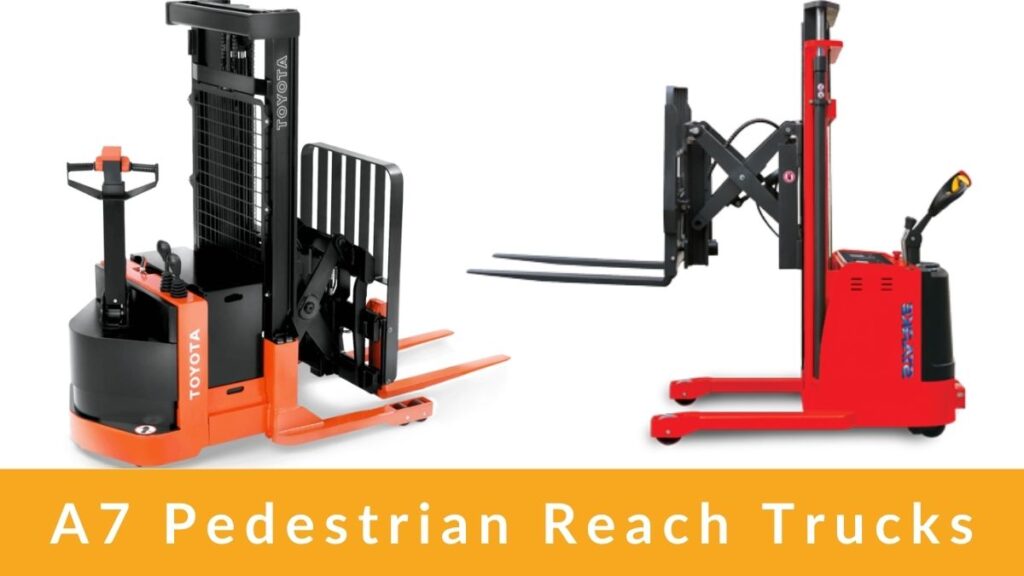
A7 Ped Reach Trucks
The A7 Reach Trucks are pedestrian operated with Low/Eye/High level lift heights. Electric powered.
Pallet Truck Training Standards
Dolifts FLT Training Ltd, and our instructors, are RTITB Accredited, experienced, and hold current liability insurances.
All Pallet Truck Courses and Pallet Stacker Truck Courses (PPT/POET), and issued operator certification, meet RTITB standards, and HSE ACOP L117 requirements.
Our Pallet Truck and Pallet Stacker Truck training packages can be designed to work around you and the working schedule/shift patterns of your business in the North West.
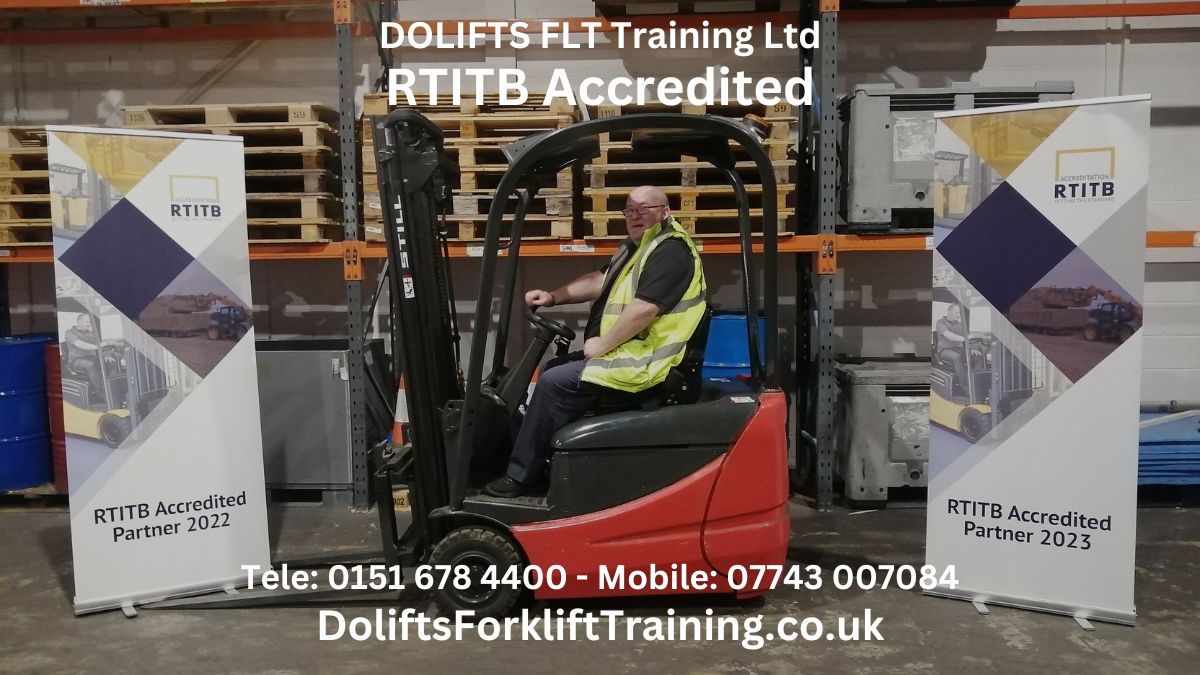

Still looking for Pallet Stacker Truck courses near you?
Call DOLIFTS Today!
Tele: 0151 678 4400
Mobile: 07743 007084
Pallet Stacker Truck Courses - FAQs
Do you deliver pallet stacker truck courses near me?
We can provide RTITB accredited pallet stacker truck courses (PPT) (POET) throughout the North West region for Novice, Refresher, Conversion, and Experienced lift truck operators.
Do you provide onsite pallet stacker truck courses for businesses?
Yes. We deliver onsite training for pallet stacker trucks (PPT/POET) to businesses throughout the North West. Our local instructors have a wealth of experience in meeting the needs of North West business customers.
How much do pallet stacker truck courses cost in the North West?
This depends on the type of pallet truck or pallet stacker course that you need in the North West. For competitive course prices, please call DOLIFTS on 0151 678 4400.
How many days is a pallet stacker truck course in the North West?
This depends on the type of Pallet Truck, your experience level, and the number of people on your course. A novice PPT/POET course in the North West can take 1 to 3 days. Conversion course 1 day. Refresher course is 1 day. Experienced operator 1 to 2 days.
A Brief History of Pallet Trucks
Did you know this about Pallet Trucks?
A pallet truck, also known as a pallet jack, pallet pump, pump truck, scooter, dog, or jigger is a tool used to lift and move pallets. Pallet trucks are the most basic form of a forklift and are intended to move pallets within a warehouse.
The pallet truck or pallet stacker truck is steered by a tiller-like lever that also acts on the pump piston for raising the forks. A small lever on the tow bar’s steering handle releases the hydraulic fluid, causing the forks to lower.
The steering wheels are located directly below the tow bar and support the jacking mechanism. The front wheels inside the end of the forks are mounted on push rods attached to linkages that go to levers attached to the jack cylinder.
As the hydraulic jack at the ’tiller’ end is raised, the links force the wheels down, raising the forks vertically above the front wheels, raising the load upward until it clears the floor. The pallet is only lifted enough to clear the floor for subsequent travel. Oftentimes, pallet jacks are used to move and organize pallets inside a trailer, especially when there is no forklift truck access or availability.
Manual pallet trucks have existed since at least 1918. Early types lifted the forks and load only by mechanical linkages. More modern type uses a hand pumped hydraulic jack to lift.
A manual pump truck is a hand-powered jack most seen in retail and personal warehousing operations. They are used predominantly for lifting, lowering and steering pallets from one place to another.
Powered Pallet Trucks, also known as electric pallet trucks, walkies, single or double pallet jacks, or power jack, are motorized to allow lifting and moving of heavier and stacked pallets. Some contain a platform for the user to stand while moving pallets.
The powered pallet truck (PPT/POET) is generally moved by a throttle on the handle to move forward or in reverse and steered by swinging the handle in the intended direction. Some contain a type of dead man’s switch rather than a brake to stop the machine should the user need to stop quickly or leave the machine while it is in use.
Others use a system known as “plugging” or “feathering” wherein the driver turns the throttle from forward to reverse (or vice versa) to slow and stop the machine, as the dead man’s switch is used in emergencies only.
Rough terrain pallet trucks are designed specifically for use on uneven ground. They are made using heavy-duty frames and robust pneumatic tyres so that they can be manoeuvred over rough surfaces with ease. Many manufacturers opt for watertight wheel bearings, a hydraulic elevator, or a built-in pump to ensure their rough terrain pallet trucks are easy and comfortable to use, even in the harshest conditions.
Pallet trucks and pallet stacker trucks are classed as material-handling equipment (MHE). Under most health and safety law, training is required in their use (particularly for powered pallet trucks) and, as the loads carried are heavy, there is a substantial risk of accidents resulting in injuries.
Source – Pallet Trucks Wikipedia.
